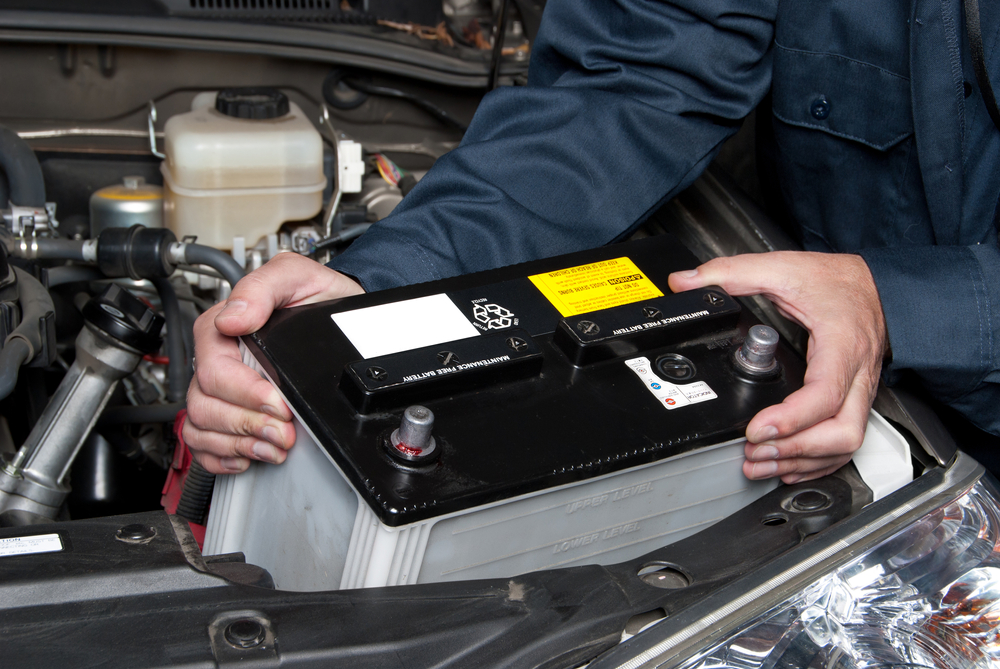At Kunes Auto Group, we understand the importance of a high-quality car battery in your vehicle's overall performance. Not only is it a critical component of your vehicle's maintenance, but selecting the perfect battery could influence your vehicle's functionality for many years to come. This blog post aims to simplify your car battery shopping experience, discussing the different types available, their distinctive features, and our top recommendation for high-performance requirements.
Understanding Car Batteries: A Diverse Landscape
Contrary to what many may think, not all car batteries are created equal. While the fundamental mechanism of transforming chemical energy into electrical current is universal, the key distinctions lie within their construction.
Flooded Lead Acid Batteries: The Classic Choice
Widely recognized as conventional batteries, flooded lead-acid batteries have been used for generations. They comprise six cells, each containing lead plates immersed in a sulfuric acid/water solution known as electrolyte. This configuration produces roughly 12 volts, suitable for most post-1960s cars.
Flooded lead-acid batteries are further classified into:
- Starting, Lighting, Ignition (SLI) Battery: The standard battery in most factory-installed cars, SLI batteries are reliable for initiating your engine and powering basic accessories. However, older versions might require periodic topping up with distilled water. They must also be installed vertically to avoid spillage.
- Enhanced Flooded Battery (EFB): An advanced variant of SLI batteries, EFBs are designed for vehicles with start-stop technology. These sealed batteries often last twice as long as traditional SLI batteries.
Valve-Regulated Lead Acid (VRLA) Batteries: A Safer, Low Maintenance Alternative
VRLA batteries, like their flooded counterparts, use lead submerged in an electrolyte solution. However, their sealed nature makes them a safer, low maintenance choice. These are categorized into:
- Gel Cell Battery: As the name suggests, these batteries contain silica that transforms the electrolyte solution into a gel, making them more resistant to high temperatures and evaporation.
- Absorbent Glass Mat (AGM) Battery: AGM batteries employ fiberglass separators to hold the electrolyte solution in place. Known for their long life and superior charging cycle resilience, AGM batteries are ideal for modern cars with high power demand, though they can be considerably more expensive.
Other Car Battery Types: A Brief Overview
While the above categories cover the majority of batteries, two other types worth mentioning include:
- Deep Cycle Battery: Not suitable for conventional cars, these batteries deliver sustained, low current power over extended periods, making them ideal for RVs, boats, and golf carts.
- Lithium-Ion Battery: The standard for modern hybrid and electric vehicles, lithium-ion batteries offer greater energy storage, faster charging, lighter weight, and enhanced longevity.
Essential Factors to Consider When Purchasing a Car Battery
Choosing a car battery goes beyond merely selecting the 'best' one. Instead, you should focus on finding the best fit for your vehicle's specific make and model. Here are some factors to consider:
- Battery Size & Terminal Position: The Battery Council International (BCI) number denotes battery fit and terminal location. Always refer to your current battery's BCI number and cross-check with your owner's manual before making a purchase.
- Cold Cranking Amps (CCA): CCA measures the number of amps a battery can provide at 0°F for 30 seconds. A higher CCA rating is beneficial for cold weather performance but doesn't necessarily mean the battery is 'better'.
- Warranty: A longer warranty often indicates a more reliable battery. It not only provides you protection but also shows the manufacturer's confidence in their product.
- Battery Type: If you've been using a particular battery type, it's often safest to stick to the same for your new purchase. However, never downgrade your battery type, especially if your car model came with an advanced battery type like AGM.
- Battery Freshness: Since batteries start decaying from the moment of manufacture, ensure your new battery is as fresh as possible by checking the manufacture date.
In summary, while selecting the ideal car battery might seem daunting, understanding the different types and considering essential factors simplifies the process. Trust Kunes Nissan of Davenport's Service Center to help navigate your car battery purchase, ensuring optimal performance and longevity for your vehicle.



